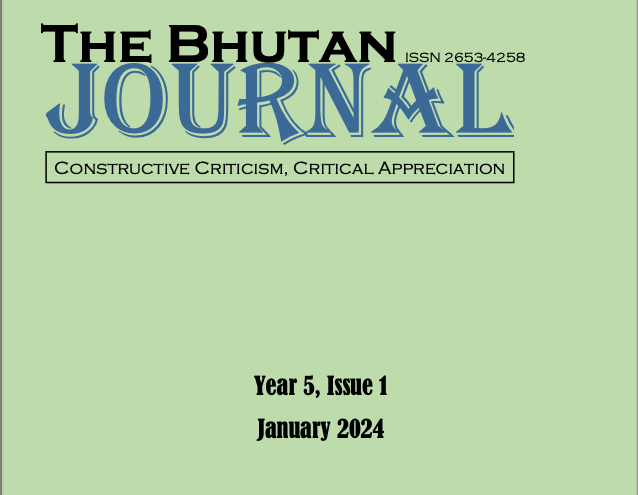Editorial
Bhutan has recently completed its fourth round of parliamentary election since starting the ‘controlled’ democratic exercise in 2008. Each election brings some surprises. This latest election come as less controversial compared to the previous three. The diaspora expects the new government will be more liberal in term of opening doors for family and friendly exchanges and re-unions. Reconnection will further erase such sentiments, build up relations that will produce more benefits to Bhutan – economically and socially.
Mental Health Among the Resettled Bhutanese
Devi Katel
The resettled Bhutanese, most specifically in the US, have widespread mental health issues. The trend has improved in the last couple of year, though. The issue is not completely absent in other countries where they have been resettled but due to the small population size, they receive less attention. There have been very few studies made on the cause of the issue to prescribe tentative solution. This article will look into the current situation of the mental health issues in the resettled communities and efforts made to address them.
Bhutanese Women in Public Spheres: Agency, Existence and Resistance
Tara Lal Shrestha
This research attempts to explore the existence of Bhutanese women in public spheres in exile. Bhutanese refugees- their (hi)stories about the resistance and existence. It blends with personal narratives, introduces instances of representative Bhutanese women who have marked traces in the resistance history. It also talks about women who exist outside the bourgeois public sphere via their case. Theoretical insights from Nancy Fraser have been used, who proposes subaltern public spheres instead of singular bourgeois public sphere. Presenting available foundations and insights, this paper posits possible ways to articulate plural public spheres for the Bhutanese women in exile.
Interim Governments in the Kingdom of Bhutan
Govinda Rizal
Globally, interim governments function as transitional entities managing governance during crises or regime transitions, facilitating the shift towards a stable governance structure. Their roles include supervising elections, maintaining law and order, addressing immediate socio-political challenges, fostering reconciliation, and upholding democratic values. In Bhutan, these bodies rectify political deviations, reconnect to autocratic governance norms, and transition selective authority to the succeeding government. During this transition phase, the interim governments orchestrate conditions conducive to a particular party’s success in the later election, thus influencing the forthcoming government’s composition.
Bhutan India Security Relations: Conflicting Cooperation
I P Adhikari
Bhutan-India relations are shaped by the changing geopolitical need and conflicting security arrangements in the Himalayas. The countries call it ‘warm relations’ which are rather defined by the changing political interest of the stronger neighbour – India. This article shall look into the geopolitical shift in the Himalayan belt, its influence in Bhutan and tuning of the Bhutanese security policies to suit the need of the hour. It shall also examine the reasons for shift in those security policies at different time periods.
Interview with Dr DNS Dhakal
Deo Narayan Sharma (DNS) Dhakal is one of the few first-generation leaders of Bhutanese refugees who is still actively advocating for human rights, democracy, and amicable solutions for the Bhutanese people in exile and diaspora. He has authored many research articles and books delving into both professional subjects and issues about Bhutan and its people. His recent book, “Bhutan: Memoir of Refugee Struggle and Suggestions for an Amicable Resolution,” is possibly the largest book on Bhutan published by the Bhutanese diaspora.
